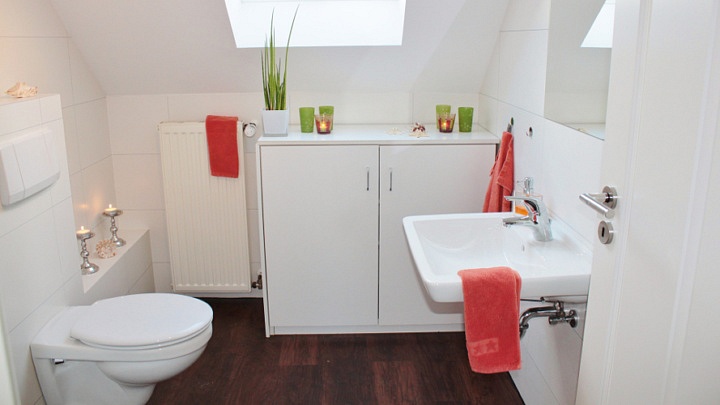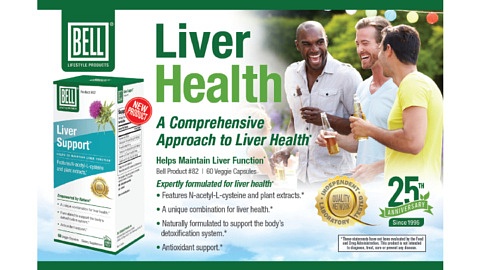The liver is an organ located within the abdomen, weighing approximately 3 lbs. This vital organ is part of the digestive system. Although there are many...
Bowel Health 101: What Causes Constipation?
Your digestive tract is an interesting place. It is a very long passageway from your mouth to your anus, totaling 30 feet in length. There’s a lot of movement that happens along the way: chomping of teeth to tear and grind your food; the stomach churning and squishing and the intestines, absorbing nutrients and water from what you eat. When the movement of the intestines slows, then your stool can get backed up and difficult to pass, like a clogged sink pipe. Constipation is when your stool is difficult to pass or is infrequent; it’s a term that can also refer to hard stool, or if you feel not all your stool has completely passed. As a naturopathic doctor, I commonly see people with this problem and I will make some useful suggestions of what to do about it, based on the different causes of constipation.
Causes and Cures of Constipation
Low Fiber
Fiber is a type of indigestible carbohydrate that serves an important purpose: to form the basis of your stool. Without this, there isn’t enough bulk to stimulate your bowel muscles to contract and thereby move the stool forward. Make sure you consume 20-30 grams of fiber daily, from sources such as fruit, vegetables, grains and legumes and seed husks. A simple way to top up your fiber and promote better bowel movements is to eat one to three teaspoons of ground flaxseed, bran or psyllium husks mixed in with two glasses of water each morning, or sprinkle on your foods… gradually increase your fiber since adding too much too fast can lead to gas and bloating.
Low Water
The fiber provides the bulky framework and the water hydrates the stool and intestinal lining to give it lubrication. Many reactions that occur in the bowel rely on proper water content so this is quite important. Ensure you consume at least four glasses of water each day, plus 5-10 servings of fruit and vegetables (which naturally contain water). Vegetable-containing soups are a great way to increase fiber and water in one meal.
Low Exercise
When you are physically active, your abdominal muscle movements help to massage the bowels from the outside. Movement of your spine also wakes the nerves that come out of your spinal column to the digestive organs. Brisk walking, sit-ups and crunches, rebounding and jogging are all helpful to stimulate a more regular bowel movement.

Stress/Tension
Your nerves and muscles react when you are under stress, typically making your intestinal organs contract. If you are under constant stress, there may be constant spasm and so there is no real movement to push the stool along. Take time to relax, breathe, exercise, reduce your stressors and your constipation may disappear.
Low Thyroid and Diabetes
These are quite common conditions associated with constipation. If your constipation persists even though you’ve tried increasing your fiber, water and exercise, consider getting more thoroughly tested for thyroid function and whether you have pre-diabetes or diabetes.
Drugs
Many medications have constipation as one of the undesired side effects. Some examples include anti-histamines, anti-depressants, anti-spasmodics, opioid pain killers and drugs containing iron/aluminum/calcium/barium/bismuth.
Other Important Fundamentals
Chew your food; this reduces the workload on the rest of your digestive tract. Take a probiotic supplement since they help promote bacterial bulk (note that about half of your stool is bacteria, so make sure you have enough by taking some probiotics). If you need a laxative, herbal options exist such as senna, cascara sagrada, olive oil enema, etc. Make sure to limit laxatives since they can promote dependency.
Related Posts
December 15, 2022 – South Haven Michigan – Liver Support
Bell Lifestyle Products announced today their new Liver Support product for the U.S....
Men’s Digestive Health
Bell LifestyleMarch 31
Whether it’s flat or flabby, gut health is
an important factor in overall health. Medically speaking the gastrointestinal
tract (GI tract) is a complex...
December 15, 2022 – South Haven Michigan – Liver Support Bell Lifestyle Products announced today their new Liver Support product for the U.S....
Men’s Digestive Health
Bell LifestyleMarch 31
Whether it’s flat or flabby, gut health is an important factor in overall health. Medically speaking the gastrointestinal tract (GI tract) is a complex...
Categories
- Allergy Relief
- Bell Lifestyle News
- Brain and Vision Health
- Depression
- Digestive Health
- Eating Healthy
- Energy Boosts
- Fitness
- Foods for Energy
- Heart and Lung Health
- Herbs
- Immune System Support
- Lifestyle
- Men's Health
- Mental
- Motivation
- Natural Remedies
- Nutrition
- Pain Relief
- Physical
- Recipes
- Relationships
- Sexual Health
- Skin and Hair Health
- Sleep Health
- Social
- Stress Relief
- Uncategorised
- Videos
- Weight Management
- Women's Health
- Your Wellness Now
Follow us on Twitter
#90 Bladder One for Women™ is a convenient one-a-day capsule for urinary tract health, featuring herbal extracts in… twitter.com/i/web/status/1…
May 2023Urinary tract infections - UTI: To treat or prevent? That is the question. Find out more about causes and treatme… twitter.com/i/web/status/1…
May 2023"How you feel is very important to how you look. Healthy equals beautiful." - Victoria Principal #womenshealth https://t.co/OPShoEbOXb
May 2023
© Copyright 2025. All rights reserved.




